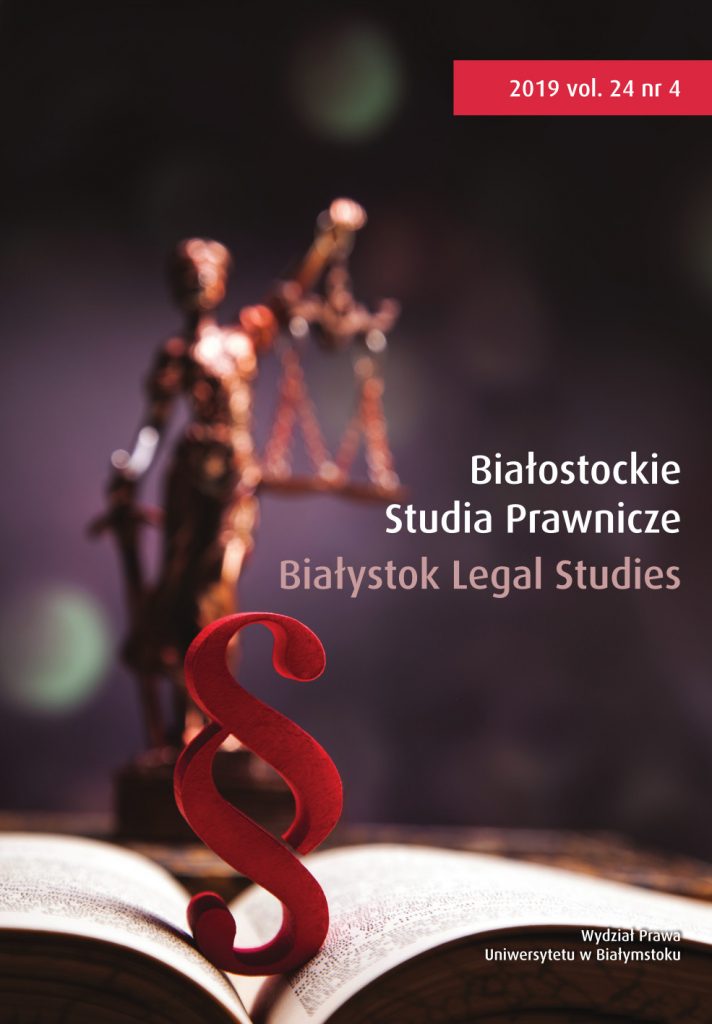The Legal Grounds of Emergence and Termination of Mandates of Members of Parliaments in Belarus and Poland: a Comparative Analysis
Abstrakt
The existing grounds for granting and terminating Belarusian and Polish parliamentary mandates from the legal point of view are nowadays rather debatable. The article presents a comparative study of these legal categories based on the considerable historical, regional and legal similarity of the above neighbouring countries and their legal doctrines.The main conclusion of this article is that a large number of similar legislative provisions is related to their essence and is preconditioned mainly by the common origin of Polish and Belarusian parliamentary institutions. Their main point is that the grounds for granting and terminating parliamentary mandates, as an integral element of their legal status, sets the time frame for exercising the authority of both Polish and Belarusian members of parliament. The existing differences between the above legal categories manifest themselves, first and foremost, in their formal expression – the implementation procedure.Bibliografia
Bezuglov A.A., Constitutional law of Russia, Moscow 2001.
Bezuglov A.A., Sovetsky deputy. State and legal status, Moscow 1971.
Garlicki L., Polskie prawo konstytucyjne, zarys wykładu, Warszawa 2011.
Grajewski K., Status prawny posła i senatora, Warszawa 2006.
Krylova N.S., The constitutional models of legislature, (in:) N.S. Krylova, Comparative constitutional law, M.oscow 2002.
Nudnenko L.A,. Constitutional legal status of the deputy of the legislature governmental body in the Russian Federation, Sankt Petersburg 2004.
Sarnecki P. (ed.), Prawo konstytucyjne Rzeczypospolitej Polskiej, Warszawa 2011.
Skrzydło W. (ed.), Polskie prawo konstytucyjne, Lublin 2008.
Vasilevich G.A., The constitution and problems of improvement of electoral law in the Republic of Belarus, “Journal of russian law” 1999, no. 5/6.



